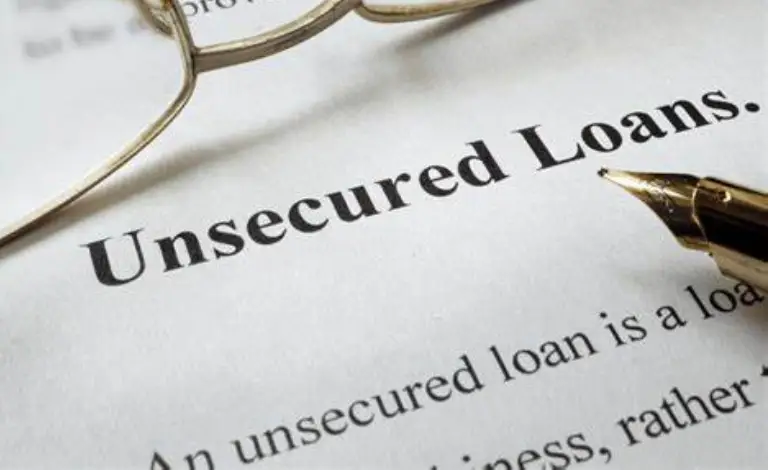Business loans unsecured are loans given to businesses without the need for collateral. Unlike secured loans, which require borrowers to offer assets like property or equipment as security, unsecured business loans rely on the borrower’s creditworthiness and financial history. These loans are often sought by small businesses and startups that lack significant assets to use as collateral.
To learn how business loans unsecured work, it’s important to know the lending process. Here are the key steps:
Application:
Businesses can apply for loans through banks, credit unions, or online lenders. The application typically includes financial statements, tax returns, and a business plan.
Credit Check:
Lenders do a credit check on the small business owners and sometimes on the owners. A strong credit score increases the business line chances of loan approval.
Loan Approval:
If the the business owner qualifies, the lender offers loan terms, including the amount, interest rate, and repayment schedule.
Repayment:
The the small business owner then repays the loan in installments in the agreed period, which can range from months to several years.

Unsecured business loans offer fast funding without putting up collateral, but your assets may still be at risk
The Lendingtree site receives restitution from the companies that are mentioned on this page and such compensation may affect the ways that a particular offer appears on the site (this includes ordering). Lending Tree includes neither the lending products available on the market nor any available credit facilities. Privacy protected | Advertisers disclosure.
Secured loans vs. unsecured loans
Security loans and collateralised loans are loans that need collateral to be approved. A secured loan may seem safer for the borrower, however more risky for the borrowers. In the event of a nonpayment of a loan, lenders could use the asset or assets as collateral to pay off their loan debt. The loan cannot be secure unless it is guaranteed by any particular asset. A business loan with secured security may be a risky one but less risky for investors. If the borrower fails on their loan the bank cannot take the asset.
Fundbox: Best for short-term loans
Overview: Fundbox’s financing focuses on the short-term product of line of credit. It allows businesses access to funds within 1-2 working days and provides an easy-to-use website dashboard and an app to keep track of. Fundbox also has a strong reputation amongst lenders with stricter lending policies than most other line of credit providers. It is possible that an application can be completed with six months of work, 500 individual credit scores and 100,000 annual revenue.
Loans backed by the Small Business Administration
The SBA offers the majority of loans arranged by a bank to them. If borrowers have secured collateral, the SBA loans and guarantees may be easier, but not always. The SBA is using the 7(c) Loan Program. The borrower will simply need to prove positive cash flow for debt service or acquisition. The other SBA loans and guarantees the lenders 75% of all losses incurred by the loan.

Line of credit
A business credit card gives you the ability to use your full credit limit at any given time to obtain a loan. Like credit card payments, you pay the interest on what you want. Providing you don’t exceed a certain number, you may continue to borrow on your credit card until you’ve opened it. Tell me the amount that can be used by businesses in the US with business credit cards with limits up to $6,000. The rate of the loan is 10%. It is a $500 – $600 purchase from the retailer for stock. When a borrower repaid $500 with $50 interest, the available credits will return to 6.75.
What is an unsecured small business loan?
Small Businesses loans are a form of business finance for businesses aiming to cover costs related to starting, running, or growing the businesses they are operating. The small business loans offered can cover the purchase and maintenance, or cash-flow problems, or consolidate business loans. A secure business loan requires business assets as collateral — it’s a property you agree to give away if you cannot repay your loan. Unsecured small business loan loans require no assets in order for you to be secure.
Invoice factoring
Allows you to sell outstanding invoices for a factor company for a percentage from the total invoice. Once the invoice factoring or companies collect payment for you the charges are deducted from your invoice and send you a balance. Can I get an instant refund from my bank? Personal guarantee is a standard clause for business loans. It is responsible for resolving the company’s existing debt if they default.
Merchant cash advance
Merchant cash advances are an alternative to commercial finance in that merchant cash advance is that you get a certain percentage of the sale you make on future purchases. Because the funding usually has competitive interest rates and carries tighter eligibility requirements, it could also help new entrepreneurs who are not eligible for cheaper business financing elsewhere.
The easy way to get a small business loan without collateral
If you put up collateral, the chances that you’ll get an unsecured loan are high. Wait until the collateral is found. It’s not possible, but there are other possible ways to make your money more accessible. Working Capital provides small companies with a way to get the money they need to continue growing.
Small Business Grants
Unlike most loans though, small businesses do not need a repayment plan. Government grants are a form of financial assistance that provides financial incentives for small businesses rather than lending cash. However, application procedures are often highly competitive and require considerable time & effort. It functions as a credit card, but uses it for business expenses. Although business cards have higher interest rates than most small business loans do, they feature flexibility requirements. If you or small business owners can’t borrow much cash then a business credit card is a more appropriate solution.
How to get an unsecured business loan
How do businesses get loans? 2. Determine your borrowing needs : Check if you have the money available to both pay interest on back the business debt amount. Use our Business Loan Calculator to understand how the loan amount affects your budget. 2. Evaluation of qualifications – You must consider how many business loans you need. The lender will usually examine your revenues and the length of your company. Lenders may use your personal or business credit scores as a basis to determine your interest rate amount.

When To Choose an Unsecured or Secured Business Loan
Generally unsecured business loans can help you to secure an investment if it’s a business with limited resources or with less security options. A secured term loan also may offer better monthly rates but have less flexibility – Alternatively, opt for an secured term loan only when your rate is competitive.
Qualifying for Business Loans Unsecured
Qualifying for unsecured business line of loans unsecured small and business line of loans can be more challenging than secured loans due to the higher risk for lenders. Here are the key factors lenders consider:
1. Credit Score
A high personal and business credit score is crucial. Lenders use credit scores to assess the risk of lending. A credit score score above 700 significantly increases the chances of approval.
2. Business Financials
Strong financial statements, including profit and loss statements, balance sheets, and cash flow statements, demonstrate the business’s ability to repay the loan.
3. Business Plan
A solid business plan covering all a small business owner’s goals, strategies, and financial projections can convince lenders of the small business owner’s potential for success.
4. Time in Business
Lenders prefer businesses with a track record. Typically, businesses need to be operational for at least one year. Startups might find it harder to qualify without an established history annual revenue.
Interest Rates and Fees
Interest rates for business loans unsecured are generally higher than secured loans due to the increased risk for lenders. Rates for term loans can vary widely depending on the lender, loan type, and the borrower’s creditworthiness. It’s important to compare rates from multiple lenders to find the best deal.
In addition, monthly payments due to affordable interest rates, lenders may charge various fees, including:
- Origination Fees: A fee for processing the loan, usually a percentage of the loan amount.
- Late Payment Fees: Penalties for missing payment deadlines.
- Prepayment Penalties: Fees for paying off the loan early, although not all lenders charge this.
Repayment Terms
Repayment terms for business loans unsecured can vary from loan options and lender to lender. Some loans have short terms of a few months, while others can extend to several years. The repayment schedule can be daily, weekly, and weekly or monthly payments, depending on the loan type and lender.
Managing Business Loans Unsecured
- Successfully managing business loans unsecured involves good planning and financial discipline. Here are some tips:
- Create a detailed budget to ensure the loan funds are used effectively and repayments are made on time.
- Keep a close eye on cash flow to avoid shortages that could affect repayment ability.
- Use the loan to build a positive credit history by making timely repayments. This can improve the chances of securing future financing at better rates.
- Communicating with Lenders: Maintain open communication with lenders. If financial difficulties arise, discuss possible solutions such as restructuring the loan.
Common Uses for Business Loans Unsecured
Businesses use unsecured loans for various purposes. Here are some common uses best unsecured business loans:
Working Capital
Working capital loans help cover day-to-day operational expenses, such loan costs such as payroll, rent, and utilities, ensuring the business runs smoothly.
Expansion
Businesses looking to expand their operations, open new locations, or enter new markets can use unsecured loans to fund these initiatives.
Equipment Purchase
Although equipment loans are often secured with collateral loans, unsecured loans can also be used to purchase equipment, especially when quick funding is needed.
Inventory Purchase
Retailers and wholesalers can use unsecured loans to buy inventory, especially during peak seasons when demand is high.
Comparing Business Loans Unsecured
When considering business loans makes unsecured loans, it’s crucial to compare offers from different lenders. Here’s what to look for:
- Compare the annual percentage rate (APR) across different lenders. A lower APR can save money over the loan term.
- Look at the repayment terms offered. Consider the length of the loan and the frequency of payments to find what fits your cash flow.
- Examine all fees associated with the loan. These can add up and significantly impact the total cost of the loan.
- Research the lender’s reputation by reading reviews and checking their standing with the Better Business Bureau. A reputable lender is more likely to offer fair terms and good customer service.
Business loans from unsecured business lenders offer a valuable financing option for businesses that lack surety. Understanding how these loans work, what types are available, and the qualification requirements can help businesses make informed decisions. By comparing lenders and managing the loan effectively, businesses can leverage unsecured loans to support growth, manage cash flow, and achieve their financial goals.
Frequently Asked Questions
Can you get an unsecured business loan?
To secure a loan, your company must be well-paid and have good credit. Occasionally you can provide a personal guarantee that guarantees secured business loans. There’s also broader flexibility for other types of unsecured loans, like cash advances from merchants or invoice factoring.
Can I get a loan with an EIN number?
What are the best methods of getting a loan? Some circumstances may require that lenders use your personal credit score to lend to you rather than use your personal credit history for this purpose. You may be unsure of how to obtain an EIN or how to qualify for a small business loan.
Does the SBA give unsecured loans?
Unsecured Business Loans are available for a wide variety of purposes, including unsecured business loans. It’s possible using unsecured lending to buy inventory, existing business, equipment, property or other things for sale.


 Read More
Read More 




